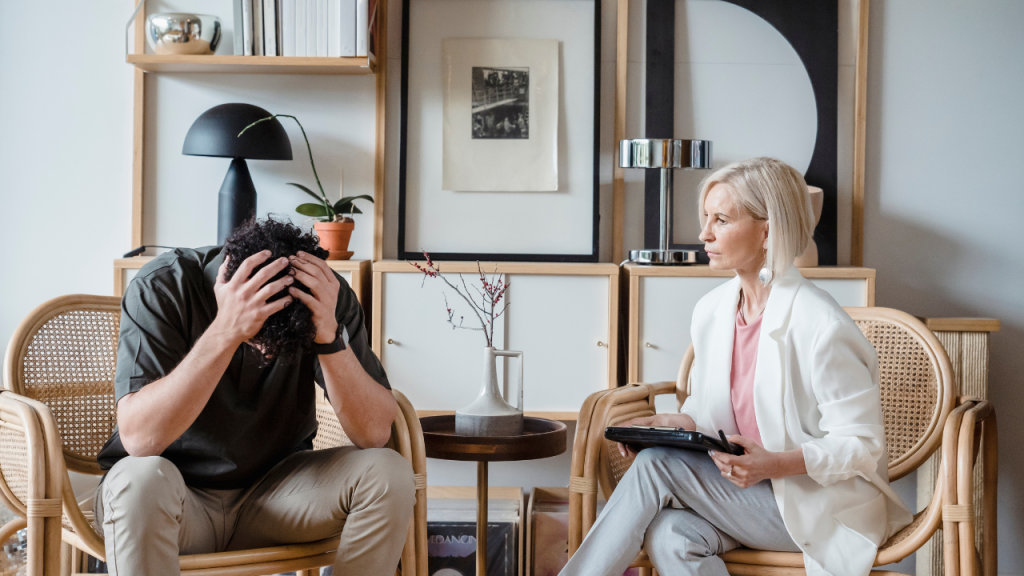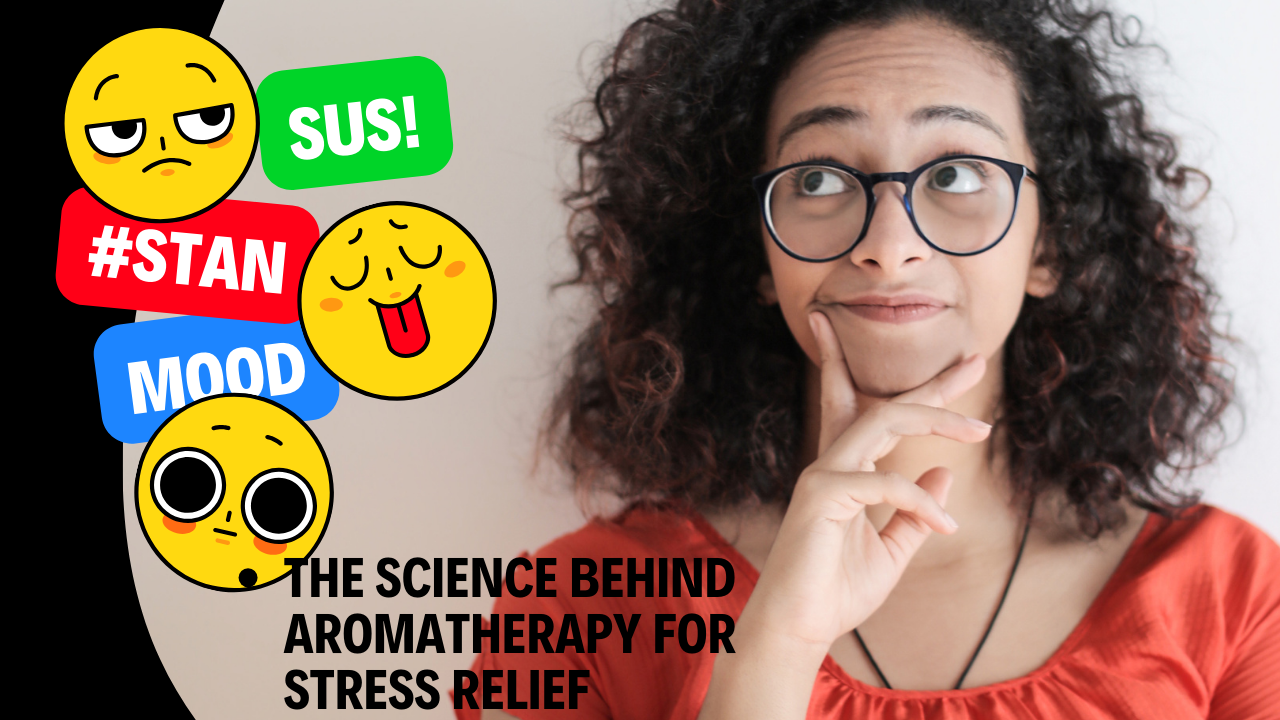Introduction
Have you ever walked into a spa and felt instantly relaxed just from the calming aroma in the air? Or perhaps you’ve smelled lavender before bed and noticed a sense of peace wash over you? This is the power of aromatherapy—a practice that uses essential oils to promote relaxation, reduce stress, and enhance well-being.
Aromatherapy has been around for thousands of years, with ancient civilizations like the Egyptians, Greeks, and Chinese using plant extracts for healing and relaxation. But beyond tradition, modern science is uncovering how certain scents interact with the brain to influence emotions, stress levels, and even physical health.
In this article, we’ll explore:
- The science behind aromatherapy and how it affects the brain.
- The best essential oils for stress relief.
- How to use aromatherapy effectively and safely.
- Real-life testimonials and expert insights.
- The future of aromatherapy in stress management.
Let’s dive into the fascinating world of aromatherapy and its impact on stress relief!
What is Aromatherapy?
Aromatherapy is a holistic healing practice that uses natural plant extracts—called essential oils—to enhance well-being. These oils are extracted from flowers, leaves, bark, and roots and are used in various ways to improve physical and emotional health.
How Aromatherapy Works
Aromatherapy works by stimulating the olfactory system, the part of the brain connected to smell. When you inhale an essential oil, the scent molecules travel to the limbic system, which is responsible for emotions, mood, and memory. This triggers the release of neurotransmitters like serotonin and dopamine, which promote relaxation and stress relief.
Common Methods of Using Aromatherapy

- Diffusers: Disperse essential oil molecules into the air.
- Inhalation: Directly inhaling from the bottle or using steam inhalation.
- Topical Application: Applying diluted oils to the skin through massage or roller bottles.
- Aromatherapy Baths: Adding oils to warm bathwater for a full-body relaxation experience.
The Science Behind Aromatherapy and Stress Relief

How Essential Oils Affect the Brain
Aromatherapy’s impact on stress is not just psychological—it’s biological. When you inhale an essential oil, the molecules bind to olfactory receptors in the nose, sending signals to the brain’s limbic system, which regulates emotions.
Scientific studies show that:
✅ Lavender oil reduces cortisol levels, the hormone responsible for stress.
✅ Bergamot oil increases dopamine and serotonin, improving mood.
✅ Ylang-ylang oil slows heart rate and lowers blood pressure.
Scientific Evidence Supporting Aromatherapy
Research supports the role of essential oils in stress relief:
- A 2012 study published in Evidence-Based Complementary and Alternative Medicine found that inhaling lavender oil significantly reduced stress and anxiety in patients undergoing dental procedures. (Source)
- A 2015 study in the Journal of Alternative and Complementary Medicine showed that a blend of bergamot and lavender oil lowered heart rate and blood pressure, indicating reduced stress levels. (Source)
- A 2020 study in the International Journal of Molecular Sciences explained that essential oils can modulate neurotransmitters like GABA and serotonin, which play a crucial role in stress regulation. (Source)
Best Essential Oils for Stress Relief
Each essential oil has unique properties that affect the nervous system differently. Here are some of the best oils for reducing stress and promoting relaxation:
| Essential Oil | Benefits for Stress Relief |
|---|---|
| Lavender | Reduces cortisol, improves sleep, calms the mind. |
| Chamomile | Lowers anxiety, soothes nerves, promotes relaxation. |
| Bergamot | Uplifts mood, balances emotions, relieves tension. |
| Ylang-Ylang | Reduces heart rate, lowers blood pressure, combats stress. |
| Frankincense | Enhances emotional balance, deepens breathing, eases worry. |
How to Use Aromatherapy for Stress Reduction
1. Using a Diffuser
- Add 5-10 drops of essential oil to a diffuser filled with water.
- Turn it on and let the scent fill the room for 30-60 minutes.
- Best for relaxation at home or the office.
2. Inhalation for Instant Calm
- Add 2 drops of lavender or chamomile oil to a tissue and inhale deeply.
- Use aromatherapy inhalers with a blend of stress-relieving oils.
- Perfect for on-the-go stress relief.
3. Aromatherapy Baths for Deep Relaxation
- Mix 5-10 drops of essential oil with 1 tablespoon of carrier oil (like coconut or jojoba oil).
- Add the mixture to warm bathwater and soak for 20 minutes.
- Ideal for unwinding after a stressful day.
4. Massage with Essential Oils
- Mix 5 drops of essential oil with 1 teaspoon of carrier oil.
- Massage onto your shoulders, neck, or wrists.
- Helps relieve tension and promote relaxation.
Real-Life Testimonials and Case Studies
Sarah’s Story: Overcoming Anxiety with Aromatherapy
Sarah, a 35-year-old teacher, struggled with chronic stress. After trying multiple methods, she incorporated lavender and chamomile aromatherapy into her nightly routine. Within weeks, she reported improved sleep and reduced anxiety, allowing her to manage work stress more effectively.
Expert Insight
Dr. Emily Carter, a holistic therapist, states:
“Aromatherapy is a natural and effective way to manage stress. The olfactory system has a direct link to the brain’s emotional center, which is why essential oils can produce such profound relaxation effects.”
Risks and Precautions of Aromatherapy
Although essential oils are natural, they must be used safely:
🚨 Dilution is key: Never apply undiluted essential oils directly to the skin.
🚨 Allergic reactions: Some people may be sensitive to certain oils. Perform a patch test first.
🚨 Avoid during pregnancy: Some oils, like clary sage, should be avoided.
🚨 Medical conditions: People with asthma or epilepsy should consult a doctor before using aromatherapy.
The Future of Aromatherapy in Stress Management
Aromatherapy is gaining popularity in hospitals, wellness centers, and corporate settings:
🌱 Many hospitals use lavender and peppermint oil to ease patient anxiety.
🏢 Companies like Google and Apple incorporate aromatherapy diffusers in offices to enhance employee well-being.
📖 Research on aromatherapy in mental health treatment is growing, making it a promising tool for stress relief.
Conclusion & Actionable Takeaways
Aromatherapy isn’t just a luxury—it’s a scientifically backed method to reduce stress and enhance well-being. Whether you diffuse essential oils, add them to your bath, or use them for massage, incorporating aromatherapy into your daily routine can help create a calmer, more balanced life.
Ready to give aromatherapy a try? Start by experimenting with lavender or bergamot and see how it transforms your stress levels!
🔹 What’s your favorite essential oil for stress relief? Share your thoughts in the comments!
Discover the science behind aromatherapy and how essential oils can relieve stress naturally. Learn about the best oils, application methods, and expert-backed research.
Readmore….https://totalinsights.online/wp-admin/post.php?post=28879&action=edit

